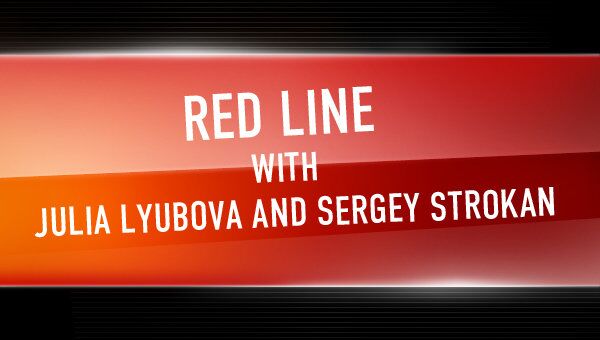Breathtaking world soccer tournament in Brazil was followed by the leaders of Brazil, Russia, India, China and South Africa gathering in the city of Fortaleza for a BRICS summit. The leaders of the emerging economies have set up the $100 billion BRICS Development Bank. They also established a reserve currency pool worth over another $100 billion to cut out the influence of Western lending institutions and the dollar.
Alexander Lukin, Vice-President, Diplomatic Academy of Russian Federation.
— What exactly the function of this new developing bank, of course, we’ve seen set up following BRICS summit in Brazil? How significant is this bank?
Actually, there are two options which to create this entity. One of them is Investment bank that money will use for investing and joining projects. And another one is Contingency fund which will use in an agency case and programs with the currency of member states. In that case, this fund is created to support this currency.
— While visiting BRICS summit in Brazil this week President Putin described BRICS bank as a one of the major multilateral development financial institutions. So, it seems that really establishing in the bank looks like a milestone in the integration of the BRICS. What extent you think it will really come as a change for the global economy?
— Sure. Because at the moment, there is only World Bank which can really invest into international projects. And it’s dominated by Western powers. BRICS countries try to change the situation in the World Bank. But they are still dominated by developed countries. And BRICS countries are trying to be on a position themselves as representing the non-develop to world. There is going to function well. It will take time to begin functioning effectively. If it’s going to function effectively, it would be a serious alternative to Western dominating financial system.
Russia financially is not the most powerful country among BRICS members. But it will play a role. And, of course, at the moment, some Russian banks are cut off because of the sanctions from long-term credits. We can provide long-term credits that might be better for Russia and the other countries in future.
Georgy Toloraya, Director, National committee for BRICS research.
— It’s a political project. And I could define in general terms as a union of reformers, union of international relations, especially global economic and financial architecture. BRICS come away from the first meeting six years ago to full-fledged format, which has inside cooperation by 23 tracks. And therefore, it has become a political force in international relations, especially now and this is the peculiarity of the current summit. These meetings tend to be very important one symbolizing that there is a new group of countries which are not formally organized into a union and will never probably be a military political union like NATO. But this group of countries has certain principles both international security and international economic affairs. And it wants with principle to be implemented in cooperation with the West. So, they have to move follow with structures. And this is also the significance of the current summit.
This is very interesting idea. It’s quite new when you think about it. Because BRICS includes both the biggest world produce of energy and also the biggest consumers, especially China and India. So, making a sort of arrangement of the consumers and suppliers to stabilize the prices, to stabilize the supply of energy. I think it’s very fruitful undertaking. This will certainly give a big influence of the world energy market and hopefully will help BRICS countries and other countries which may join to obtain energy security.
Actually, currency reserve arrangement is a sort of emergency fund which might not be using in the near future, hopefully. But in case some countries will need financial assistance to stabilize currency fluctuation or depression of national currency. Then it would be very useful because the money can be received by the countries without conditions. This is much easy, much faster to obtain financial stability in any country in time of crisis. I wouldn’t exaggerate this currency reserve arrangements. It’s more a symbolic gesture then a practical for the moment. But in the future it will be tendency of moving away from the dependence on the dollar as international reserve currency. Because BRICS countries more and more use the national currency for trade, for bilateral trade. And maybe one day would be sort of unifying currency in BRICS. It could be an alternative to dollar or euro. But this is still speculative area. Anyway, this measure by BRICS countries and countries who may join to this arrangement. I think it will help stabilize the global financial architecture.
Nandan Unnikrishnan, vice-president, Observer Research Foundation (New Delhi).
— Of course, it is exiting for anyone to be a part of a new project. Till now all developing banks have essentially been dominated. And for the first time, countries come together to start developing bank. It is exciting to be in the beginning of something like this. And probably what can be achieved to this institution?
India is a developing country. On average, India has hundreds of millions of dollars to be able to avoid poverty and reach an appropriate level of development. Definitely, we hope to benefit in terms of getting some money for projects, infrastructure project, in particular. At the same time, India plays the role internationally. We would like to see that developing countries also benefit from projects that could be founded from this bank. Initially, it’s going to be limited amount of money available to the bank. Keeping that in mind, India will cope with these limits.

